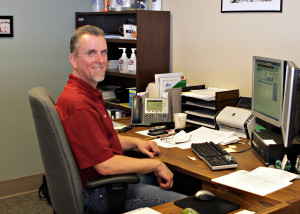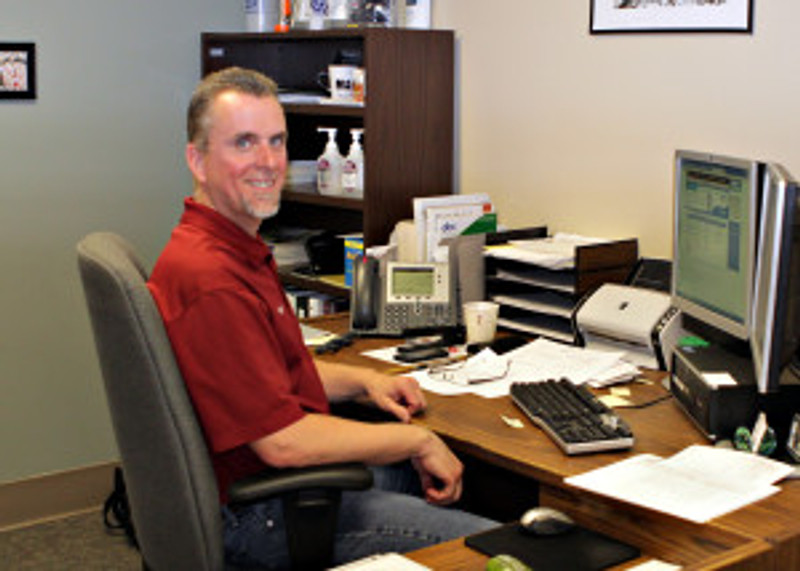
On the outside, it may seem like Boca Terry specifically caters to hoteliers and spas. Over the years, purchasing managers of hospitals have started to recognize the importance of increasing the quality of their amenities for patients and expecting mothers. Due to this recent trend, Boca Terry now works with private and public hospitals across the country. To get a better idea of what our hospital customers are looking for in a bathrobe, towel or slipper for their patients, we caught up with Matt Lafser and John Rodriguez of Samaritan Hospital in Moses Lake, Washington, who work as a buyer and materials manager respectively. Matt and John have been working with Boca Terry for the last year, and from the sound of it, they couldn’t be any happier!
What qualities do you look for in a bathrobe supplier company such as Boca Terry?
Matt: The hardest aspect of my role is locating a good product that’s easy to work with at a good price.What separates Boca Terry from other suppliers of its kind is their level of customer service. If there’s a problem, I know I can count on Boca Terry to fix it right away.
How did you come across Boca Terry?
Matt: The director of Obstetrics and Gynecology came across the brand and wanted to try it for expecting mothers. Since then, Samaritan Hospital provides every mother with a Boca Terry bathrobe when they check in. Boca Terry even personalized our robes by including our logo.
Tell me more about your working relationship with Boca Terry.
John: Thanks to the previous director, we’ve been able to convert this relationship into a pilot program. However, we’re currently discussing how we can make this available to all patients. We provide each mother with a Boca Terry bathrobe as a way to say thank you for being our patient and entrusting Samaritan Hospital with their pregnancy. Since it’s essentially a gift for expecting mothers, there is no washing and reusing of robes, making it even more special for each recipient.
Does Samaritan Hospital’s maternity department solely use Boca Terry robes? If so, why?
John: I’m the hero around here. Sometimes, my patients are too hot during their stay at the hospital. To remedy the issue, I often provide a Boca Terry robe to make them feel more comfortable. This is one of the main ways we ensure the needs of mothers are met during their stay, so by offering them a robe, it’s saying, “Yes, you are still important in this process.” These are the only robes we use for expecting mothers, which is largely due to the fact that the quality is parallel to those found in spas. This is something you would receive as part of a 5-star spa treatment. In the past, our bathrobes were not designed for mothers. Since we became a customer, we have found that Boca Terry robes fit better by helping mothers maintain their modesty during pregnancy. If all of my supplies were poor quality, I wouldn’t have a job. We always look for quality. Medicine is ever changing, so it’s important to stay ahead of the curve. Overall, quality is always the desired outcome.
What kind of feedback do you receive from new mothers regarding Boca Terry’s robes?
Matt: Mothers always express their appreciation for Boca Terry robes. For this reason, we believe Boca Terry is a great company to work with.
How did you develop your career as a purchasing manager?
Matt: I’ve been working as a buyer for Samaritan Hospital for the last 19 years. I’ve always had an inclination to help people, and I do so by providing our customers with the top quality linens, bathrobes, and other necessities.
Do you have any advice for other hospitals that are looking to increase the quality of robes offered to patients?
John: As a purchasing materials manager, I always look at the last page of a catalog to understand the bottom line. This is the first step that most managers take. It’s not about the least expensive product. It’s about marketing yourself and taking care of your patients to the best of your ability while keeping the hospital’s image in mind.
What is the most challenging aspect of being a materials specialist/purchasing manager?
Matt: The most challenging aspect is finding a good product and keeping it in your inventory. Both purchasing managers and materials specialists at hospitals have to actively stay involved with the supplier to ensure that they meet the demand of their patients.




